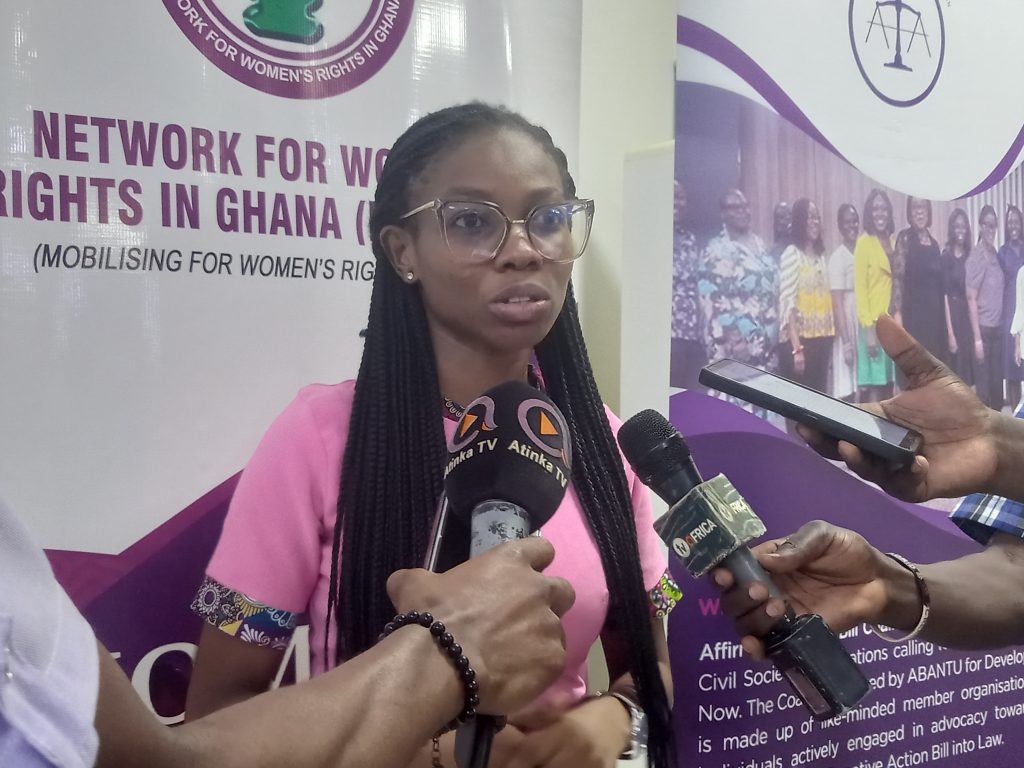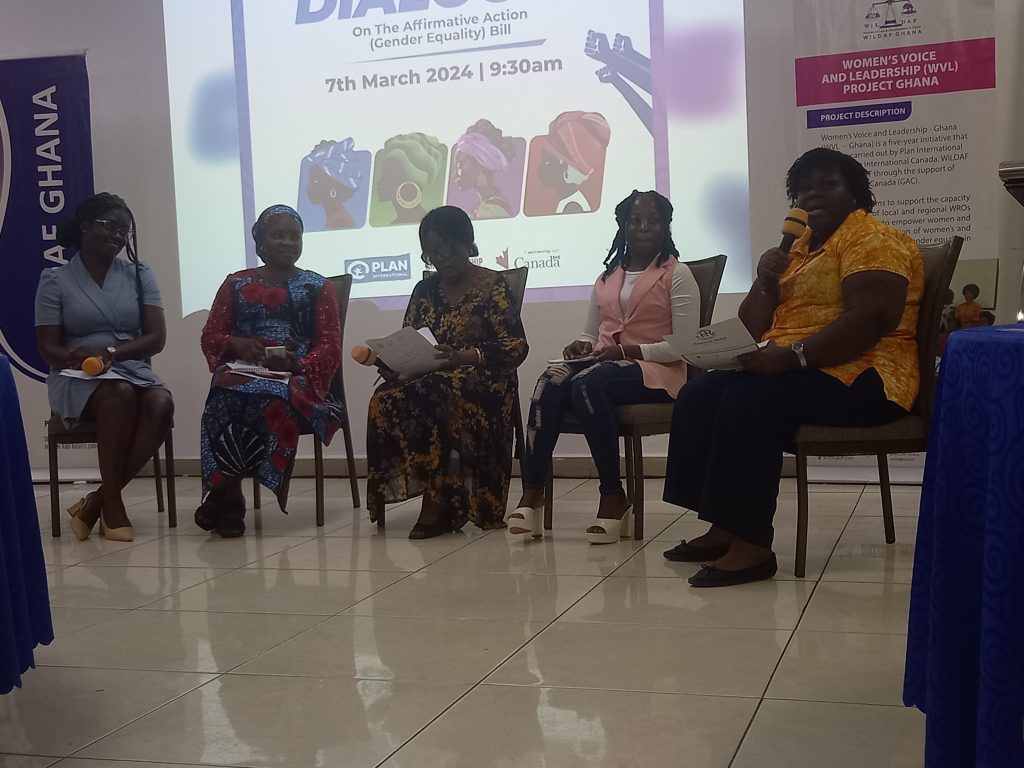By Joyce Danso
Accra, March 8, GNA – Panelists have called for the immediate passage of Ghana’s Affirmative Action (AA) Bill into law to ensure gender equity and development.
According to them, the Bill had been pending for far too long, and it was time for political leaders to act to see it passed into law.
“We have marked time for a long time, we need to march forward by passing the AA Bill into law. We need special mechanisms to make us run an equal race. Women have been marginalized for a long time.”
At an Intergenerational Dialogue/Youth Forum on the Passage of the AA Bill in Accra, they stated that if the AA Bill were enacted, it would address mischief in society and promote power sharing in the country.

Ghana’s AA Bill has been before Parliament since 2011. The AA Bill, 2023, is now in Parliament and has undergone its first reading. It has also been submitted to the Parliamentary Committee on Gender and Children for consideration.
Civil Society Organizations and other institutions have consequently increased advocacy efforts to ensure that the Bill is enacted by Ghana’s Parliament before the end of March 2024, lest the legislation expire in Parliament, as it happened in 2016.
Affirmative Action laws are policies and legislation that redress historical and systematic inequalities faced by certain communities. They seek to enhance representation in decision-making spaces where certain members of society, particularly in education, employment, and decision-making, have historically been underrepresented or discriminated against.
The dialogue drew 60 people from the Affirmative Action Bill Coalition, NETRIGHT, WiLDAF, the youth wings of various women’s rights organizations, media, and gender advocates around the country.
Panelists have consequently advocated for social media to enhance public awareness, picketing, radio and television messages, lobbying, and other activities to ensure the swift passage of the AA Bill into law.

Madam Gloria Kankam, WilDAF Ghana’s Communication, Advocacy, and Network Manager, said the quest for the Affirmative Action Bill to become law was a moral imperative, demonstrating a common will to remove legal and normative barriers.
She said the passage of the Bill would also result in “a society that honours the dignity and potential of every individual.”
Ms Becky Enyonam Ahadzi, a lawyer and Coordinator for the Affirmative Action Bill Coalition said the bill seeks to provide an accountability framework to measure gender equality and empowerment of women in the executive, legislative, judicial, public, and private sectors.
According to her, the measure was also intended to support a progressive increase in women’s active engagement in public life from 30 per cent to 50 per cent by 2023, in line with Sustainable Development Goal 5.
Ms Ahadzi said that research showed a gender imbalance in multiple spheres of life in Ghana, and “this necessitates the need for affirmative action to right the wrong of gender discrimination.”
She emphasised that affirmative action policies had not had the desired impact, and gender discrimination persisted, notably in public and political leadership positions.
Ms Ahadzi said low educational achievement had deprived some women access to decent employment, healthcare, and justice, among other things.
She mentioned that in the most recent elections in Sierra Leone in 2023, women lawmakers accounted for 30.4 per cent, up from 14.5 per cent in the previous election.
According to her, the increase in the number of female lawmakers was attributed to Sierra Leone’s Gender Equality and Women’s Empowerment Act, which was brought into law a few months ago.
She said the Act, set a 30 per cent quota of women in Parliament, the Cabinet and other institutions.
Ms Ahadzi said Ghana could emulate Sierra Leone’s example.
Yaa Nkansah Asamoah Anning, International Assistance Officer, Canada High Commission said gender equality and the empowerment of women and girls were central to Canada’s international assistance efforts around the world, including in Ghana.
“Our feminist approach is important because it asserts that these goals are central to development, prosperity and peace everywhere,” she added.
GNA